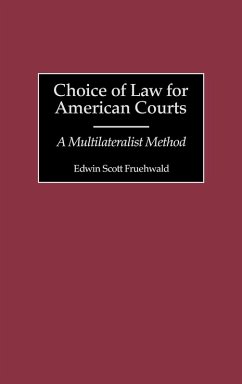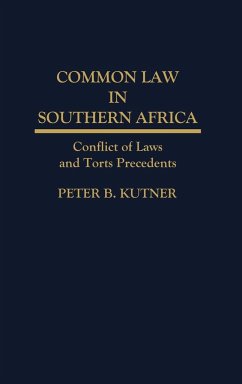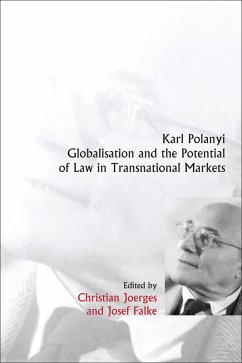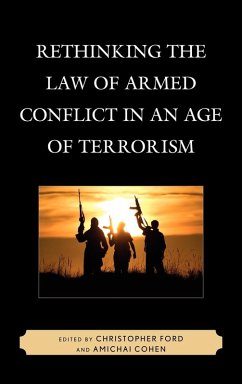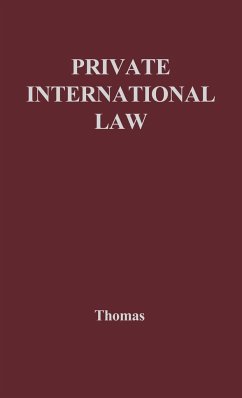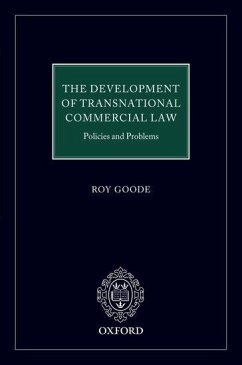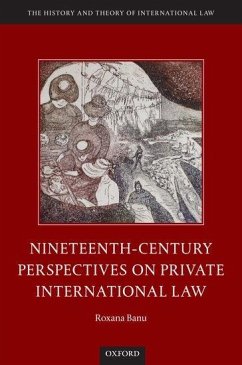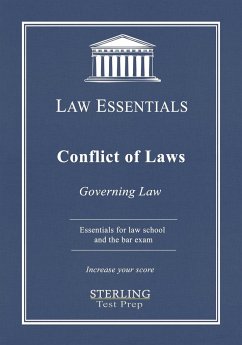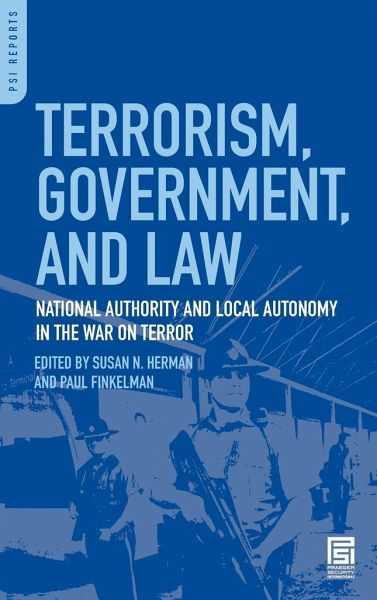
Terrorism, Government, and Law
National Authority and Local Autonomy in the War on Terror
Herausgeber: Herman, Susan; Finkelman, Paul
Versandkostenfrei!
Versandfertig in 1-2 Wochen
78,99 €
inkl. MwSt.

PAYBACK Punkte
39 °P sammeln!
If the FBI asks local law enforcement agencies to interrogate Arab and Muslim men within their jurisdictions, may the Detroit Chief of Police decline to do so? Would allowing the federal government to insist on local assistance be an example of undesirable federal overreaching or desirable national uniformity? If the FBI engages in a Joint Terrorism Task Force with local law enforcement officials in Portland, Oregon, may Portland police officers ignore surveillance-limiting Oregon state laws that apply to them, but not to the FBI? May those officers be bound to secrecy and prohibited from tell...
If the FBI asks local law enforcement agencies to interrogate Arab and Muslim men within their jurisdictions, may the Detroit Chief of Police decline to do so? Would allowing the federal government to insist on local assistance be an example of undesirable federal overreaching or desirable national uniformity? If the FBI engages in a Joint Terrorism Task Force with local law enforcement officials in Portland, Oregon, may Portland police officers ignore surveillance-limiting Oregon state laws that apply to them, but not to the FBI? May those officers be bound to secrecy and prohibited from telling their employers if their colleagues violate state law? If the city of Arcata, California, disapproves of powers the USA Patriot Act gives federal investigators, may it prohibit its law enforcement personnel from helping the FBI conduct investigations? Concern about the proper balance between federal and local authority reaches back to the founding of our nation. That discussion has been re-ignited by the shock waves generated on September 11, 2001, which profoundly challenged our understandings of various constitutional strategies established to prevent overreaching by the Federal government. Until now, the discussion about the impact of 9/11 on American law has paid little attention to federalism, a vertical check on the federal government that complements the horizontal checks created by the separation of powers of the legislative, judicial, and executive branches. Questions about the ability of state and local governments to make their own policy choices form an important subset of questions about how far the federal government can or should go in its antiterrorism efforts. Clashes between claims of national authority and claims of local autonomy raise political questions that play out within a framework of constitutional law. Terrorism, Government, and Law is designed to foster an important national conversation on this subject.



